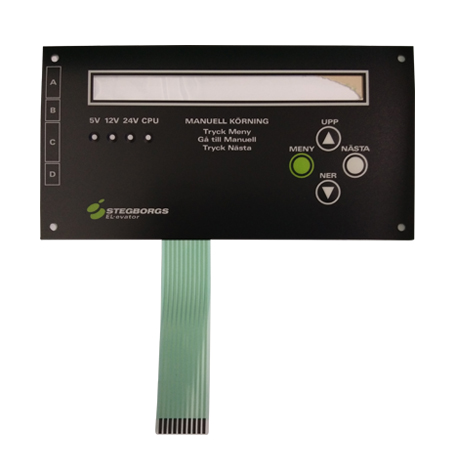Focus?on?R&D?and?manufacturing?of?metal?dome?array , membrane?switches , wire?cable , silicone?rubber?products.
ISO?management?system , a full set of testing?equipment , 5S?management0086 0769-85028856
0086 0769-85288859
Focus?on?R&D?and?manufacturing?of?metal?dome?array , membrane?switches , wire?cable , silicone?rubber?products.
ISO?management?system , a full set of testing?equipment , 5S?management0086 0769-85028856
0086 0769-85288859

Tel: 0086-0769-85028856
Tel: 0086-0769-85028859
Mobile: 0086-13794959234
Mobile: 0086-13798866509
Email: gsxingan@163.com
Email: xagyx88@163.com
Fax:0086-0769-85028857
Address: Room 302, No.18, No.1 Lane, Xinxing Road, Nanzha, Humen Town, Dongguan City, Guangdong Province, China
The process of film panel mainly includes the following:
1. Printing process
Front and reverse printing: the printing process of film panels to be divided into front and reverse printing, respectively, applied to different materials and types of film panels. Screen printing: film panels are usually screen printing technology, that is, the use of screen printing plate graphic part of the mesh can be through the ink, non-graphic part of the mesh can not be through the ink of the basic principles of printing. Screen printing plays an important role in the production of film panels, especially in the color mixing and the production of screen plate needs to be fine.
2. Pressing process
Pressing drum type film panel: on the basis of flat film panel, through the pressing mold, the panel is pressed by heat to make the key part slightly convex to form a three-dimensional key. This process not only improves the recognition speed and tactility of the keys, but also enhances the decoration of the product.

3. Thin film deposition process
Sputtering process: By means of high-speed ion bombardment or electron bombardment, the material is turned into an ionic state, and then the ion movement trajectory is controlled by a magnetic field and deposited on the substrate. This process is suitable for manufacturing metal oxide material layers in panels such as LCD and OLED. Chemical vapor deposition process: Reactants are obtained from the gas phase and deposited on the substrate by means of thermal or chemical reactions. This process is suitable for manufacturing semiconductor film layers in panels such as thin-film transistors (TFTs). Spraying process: Materials in liquid or solution state are sprayed onto the substrate in the form of a fine mist for deposition by means of high temperature, high pressure, or voltage. This process is suitable for manufacturing amorphous silicon thin film layers in panels such as solar cells. Thermal evaporation process: The material is heated above its melting point, evaporated in a vacuum environment, and deposited on the substrate. This process is suitable for manufacturing thin film layers of materials in panels such as OLEDs.
4. Assembly Process
Panel layer production: usually below 0.25MM PET, PC and other colorless light-transparent sheet material screen printing on the beautiful patterns and text made. Panel layer selection needs to have high transparency, high ink adhesion, high elasticity, anti-folding and other characteristics. Adhesive pad layer and circuit layer connection: the main role of the adhesive pad layer is the panel layer and the circuit layer is closely linked to achieve sealing and connection. The circuit layer uses polyester film (PET) with good performance as the carrier of switching circuit graphics, and through a special process of screen printing on the silver paste, carbon paste or gold paste to make it conductive.
5. Bonding process
Selection of double-sided adhesive: film panels commonly used double-sided adhesive bonding, such as 3M9080A double-sided adhesive. The choice of double-sided adhesive need to consider its durability, temperature resistance, waterproof performance, etc., to ensure the stability and reliability of the film panel.
Tel: 0086-0769-85028856
Tel: 0086-0769-85028859
Mobile: 0086-13794959234
Mobile: 0086-13798866509
Email: gsxingan@163.com
Email: xagyx88@163.com
Fax:0086-0769-85028857
Address:Room 302, No.18, No.1 Lane, Xinxing Road, Nanzha, Humen Town, Dongguan City, Guangdong Province

Add friend consultation
All rights reserved Xingan Electronics CO,.LTD